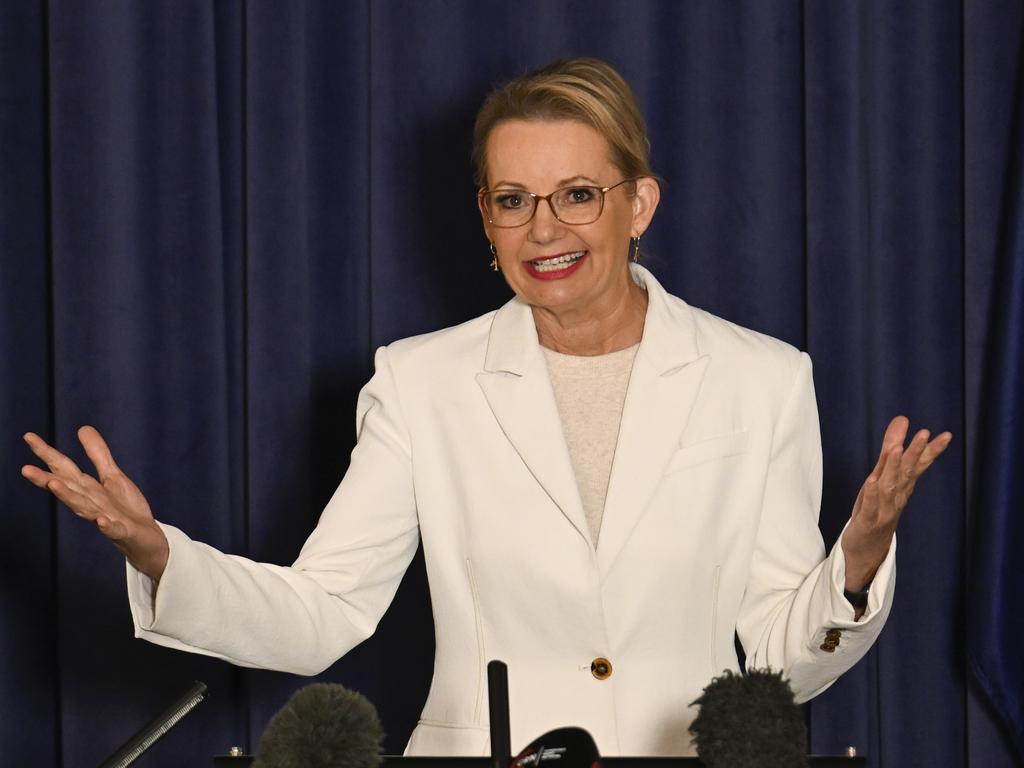Why National Party leader David Littleproud demands supermarket split for Coles and Woolworths
Shareholders, management and directors of Woolworths and Coles need to understand why the first action of any future government involving the National Party will be to split up supermarkets.
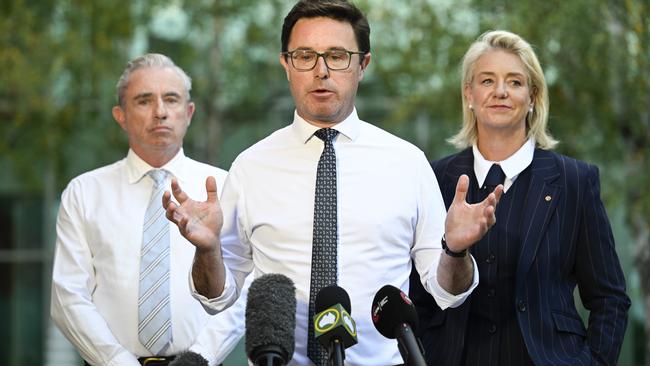
Business
Don't miss out on the headlines from Business. Followed categories will be added to My News.
Shareholders, senior management and directors of Woolworths and Coles need to understand why the first action of any future government involving the National Party will be to break up both existing supermarket businesses to create multiple supermarket enterprises in order to boost competition.
This will be a non-negotiable part of any Coalition agreement with the Liberals.
Just how the split would work has never been documented, but the 1980s division of the US telecommunications monopoly, the American Telephone and Telegraph company (AT&T), into separate companies with different ownership creates a precedent.
Dividing both Woolworths’ and Coles’ supermarket businesses into separate units to create more competition does not seem like a good idea because it will lift costs.
But the foolish past actions of former Coles and Woolworths leaders has legendary status in the National Party, which has probably sealed the long-term fate of the two giant enterprises should the National Party come to power.
Still, it is possible current leaders at Coles and Woolworths – who were not part of the past mistakes – will be smart enough to rectify the situation.
There is an old axiom which says that leaders of highly profitable, market-dominating enterprises should spend time and money keeping out of controversy and maintaining community goodwill.
Past Coles and Woolworths leaders were not taught that axiom.
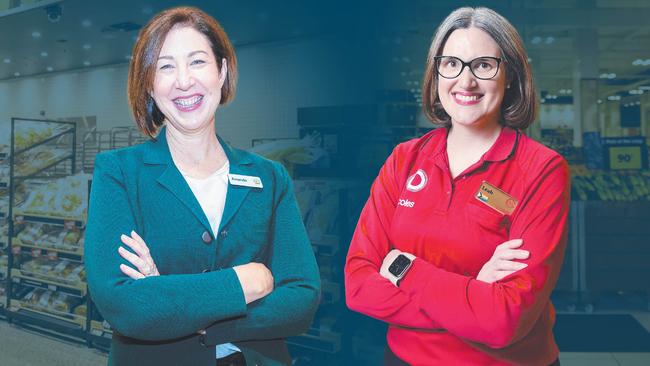
I suspect current leaders of Woolworths and Coles will reason that there are at least six years before there is a Coalition government, so they don’t have to worry.
And by that time there may be different people leading the National Party.
That might be a reasonable view, but the depth of National Party feeling against Woolworths and Coles is so entrenched that I suspect it will last for decades unless the base reasons are addressed.
On the ALP government side, there are very few ALP members with rural seats, so their agenda is about keeping prices low while pushing wages and union power higher. Privately, many say: “Farmers are always moaning”.
To understand the National Party entrenched hostility, we need to go back to Australia Day in 2011 when Coles, announced that it was slashing the price of its own-brand milk to $1 a litre, Woolworths immediately matched.
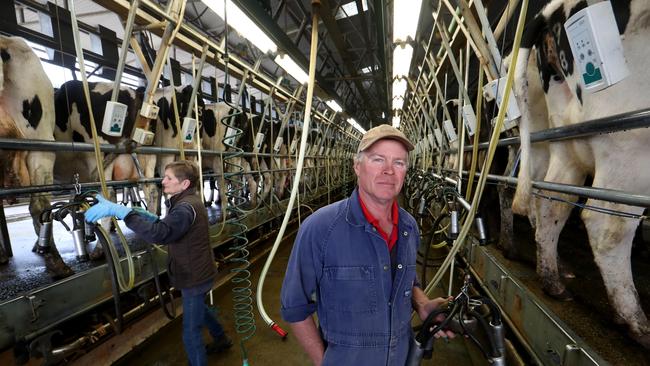
Fast-forward to 2017 when, under the Turnbull government, David Littleproud was appointed Minister for Agriculture. By that time Australian consumers were still being delighted by the low cost of milk, but dairy farmers were suffering badly. There was a widespread community push for a 10 per cent government levy to be placed on milk to keep farmers in business.
That, of course, was an anathema to the Liberals and Littleproud looked for another solution to relieve the severe diary family suffering caused by the two giants.
He arranged to see both Woolworths and Coles to plead with them to increase the price of milk received by dairy farmers by about 10 per cent.
What happened on those visits has probably been exaggerated but is now entrenched in National Party legend.
Littleproud was treated with scorn and contempt.
Suddenly, the National Party minister understood from personal experience how the two supermarket giants treat farmer suppliers.
In the years that followed the party developed an entrenched belief that the two retail giants were simply too powerful and the existence of such power was not in the national interest. And most in the National Party were constantly getting messages from farmers that power of Coles and Woolworths had to be broken.
The irony in the Littleproud legend is that his warnings to the supermarkets that milk production would be reduced, and they would face shortages, forcing much higher prices, turned out to be correct.
Woolworths and Coles thought that the farmers had nowhere to go, so would keep producing milk despite their suffering.
But, by chance, there was a boom in beef and dairy farmers were able to exit by selling their properties at good prices or simply converting to beef. The Littleproud prediction of future shortage is now a reality, and milk prices have risen.
Accordingly, in National Party eyes, the Woolworths and Coles culture is not only bad but its leaders don’t think ahead. Instead, they conceal the truth with heavy spending on public relations.
Meanwhile, in farmer land the burden of regulation and costs have multiplied, and the federal government wants to divide farms with hideous power poles to deliver an energy renewal program that will increase the cost of power.
In Victoria there is drought, and floods in NSW and Queensland. In Victoria, the government is trying to almost tax farmers out of existence.
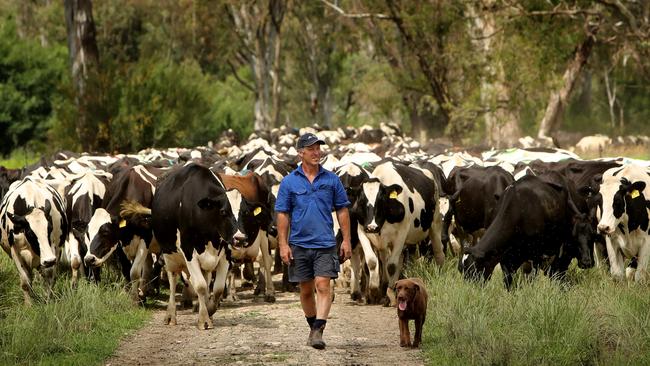
Woolworths and Coles don’t have to worry about being split for at least six years and maybe a lot longer.
Nevertheless, the agricultural supply chain is an important part of the giants’ business and, unlike the Liberals, the National Party has a clear set of policies.
As I explained on Wednesday, large numbers of young people in our community are frustrated and living from day to day. They want a vision, and it would not take much to add to existing National Party policies to give them that vision.
Unless the Liberal Party can work out where it wants to head and communicate a vision, many of the Liberal seats that were lost in the recent election could be gained by the National Party.
That might be fantasy, but it is conceivable.
Rather than take a risk that the National Party will never become powerful again, it would make long-term sense for both Woolworths and Coles to face up to what is happening and get down to working with the farmers and perhaps the National Party to develop a system of fresh food (including fish) purchases to keep the Australian rural sector strong.
Some of the costs of the extra farmer rewards may be offset by less waste.
But even if it means slightly higher prices for fresh food, prosperity in our agriculture sector is important to the supermarket giants and the nation.
More Coverage
Originally published as Why National Party leader David Littleproud demands supermarket split for Coles and Woolworths



